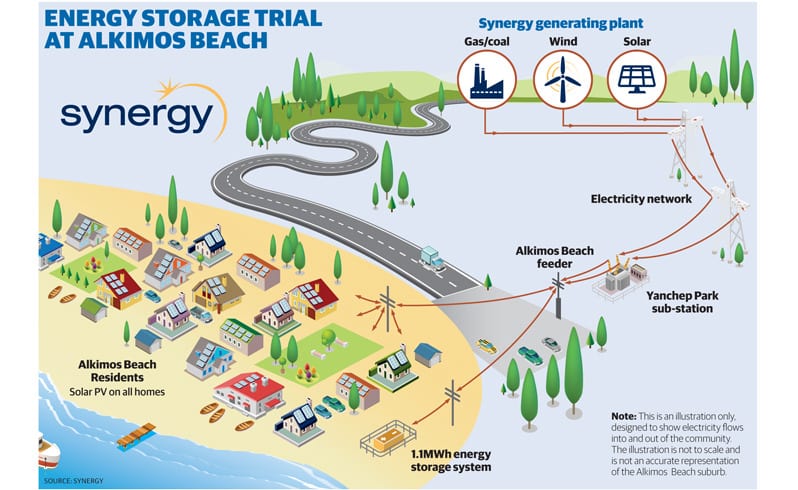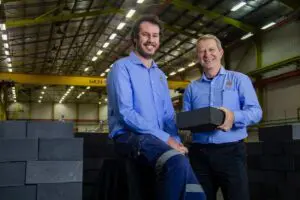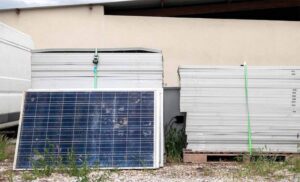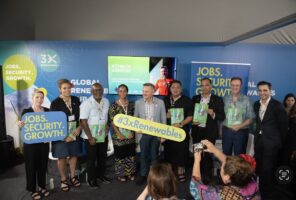The head of the Australian Renewable Energy Agency has predicted that rooftop solar and battery storage could soon become standard features of new residential housing developments.
CEO Ivor Frischknecht said battery and storage were likely to be adopted if a ground-breaking, $6.7 million community-scale solar and energy storage trial in Western Australia was successful.
The residential battery storage trial in the WA suburb of Alkimos was announced in March last year but officially kicked off on Wednesday with the installation of its major batteries storage unit. It is a collaboration of Perth energy provider Synergy and property developers Lendlease and LandCorp, supported by $3.3 million from ARENA.

It centres on the installation of a grid-scale 1.1MWh lithium ion battery – designed and supplied by local company Energy Made Clean – housed in two grid-connected shipping containers, that will store power from the suburb’s more than 100 rooftop solar systems, offering residents the experience of “virtual” energy storage.
The Alkimos Beach trial follows the news that the proposed White Gum Valley housing project – also based in WA – will also go ahead, after receiving $1 million in funding, again from ARENA.
The Fremantle-based White Gum Valley site will feature more than 80 apartments of various sizes and enough solar and storage to account for around 70 per cent of their electricity needs. In all there will be about 150kW of solar and 300kWh of battery storage.
The Fremantle project (you can read more about that here) will also test peer-to-peer trading of solar PV, where electricity generated on a certain unit’s rooftop, but not used by that individual unit, will be shared with others, and with other buildings in the complex.
“Solar will work alongside battery storage to lower Alkimos Beach’s demand for electricity from the grid,” Frischknecht said in a statement. “This model has the potential to offer residents cheaper electricity bills and reduce grid connection costs for future new developments.
“There is also a need to better understand how solar and community-scale storage can operate within traditional networks. For example, right now there are no tariffs that allow community energy storage to discharge onto electricity networks,” he said.
“The trial provides an opportunity for follow-on projects, particularly if similar models are adopted at other residential developments.
“If the approach becomes standard practice for new residential developments, this will increase the supply and use of renewable energy in Australia.”
Federal environment minister Greg Hunt, who attended the launch, said the trial would help advance efficient, cost effective, residential energy solutions and infrastructure – namely battery storage, which he said would be “equally popular with urban Australians looking to shift to clean energy and reduce energy costs.”
“Over the next 15 years, it is predicted that Australia’s population will reach 30 million with growth expected to occur in and around the nation’s capital cities and the populations of Sydney, Melbourne and Perth likely to double by 2050,” Hunt said at the launch.
“(Our) investment in projects like the Alkimos Beach trial reflects the significant role residential solar and storage is destined to play in our rapidly increasing urban landscape and as part of the nation’s future energy mix,” he said.
Indeed, Hunt played up the fact that it was “Turnbull government funding” that is “driving virtual battery storage trial in WA.” But the funding was allocated more than a year ago, when the then Abbott government was still trying to abolish ARENA.
The Turnbull government has since announced that ARENA will make no new grants after the current round of funding, so it can “protect” taxpayer money.







